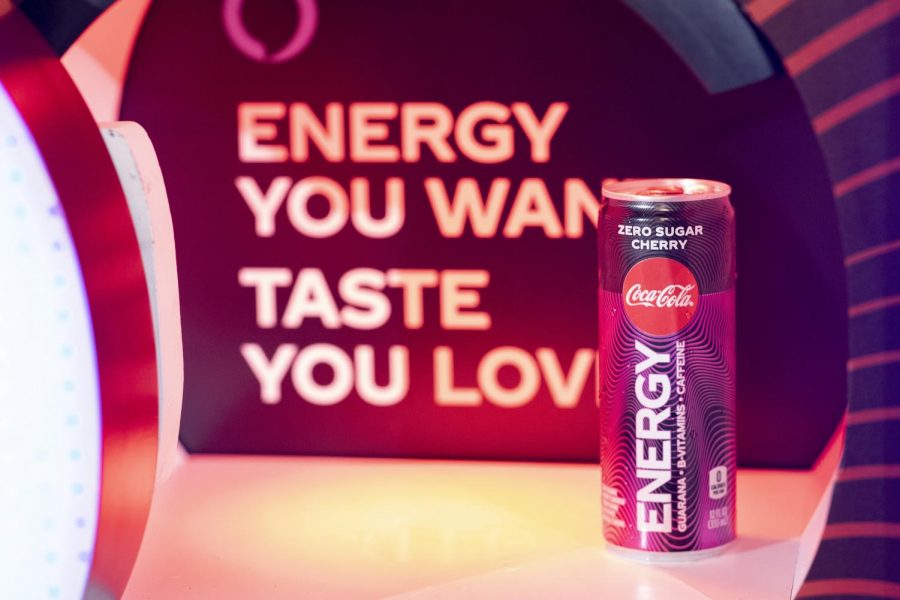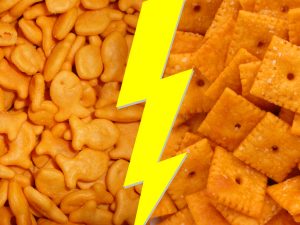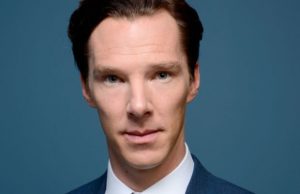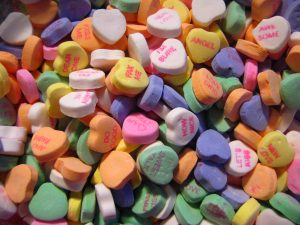Energy Drinks vs Coffee
Ann-Sophie Fjello-JensenAP Images for Coca-Cola
The interactive Amazon Alexa Coca-Cola Energy Wall serves The Coca-Cola Company’s first energy drink under the Trademark name in the U.S. – Coca-Cola Energy – at Grand Central Terminal on Monday, Feb. 3, 2020 in New York.
December 3, 2020
Most people think that energy drinks have no place being in the hands of children and are harmful with no health benefits. While this is the case in some situations, I personally believe that energy drinks offer a positive effect to high school and college students. Most everyone has to wake up early for work or school. Students in particular have a full day of work and stress then get to go home and do a massive workload that can keep them from getting the amount of sleep they need to function for school on a daily basis. This leads to the use of caffeine through either a cup of coffee in the morning or an energy drink or two.
While energy drinks are typically discouraged, there are more benefits to energy drinks than one would assume, the main benefit being energy. Having the extra energy in the system can boost productivity, alertness and just in general makes you feel brighter and more positive.
Energy drinks also have zero calorie and zero sugar options, while also being packed with other vitamins and supplements other than just caffeine; such as taurine, ginseng, and vitamin B. These drinks are carbonated, refreshing, and sweet which make them appealing to a larger audience.
There is also a lot of convenience to drinking energy drinks vs. coffee. There is more caffeine in an energy drink than a standard cup of coffee, energy drinks have anywhere from 85mgs to 500mgs of caffeine while a standard cup of coffee has around 95mgs. A monster has 195mgs per 16 oz. can.
The average price for an energy drink is anywhere from $1.69 to $3.49 depending on size and brand, while a cup of coffee averages at $2.99. They are similar in price, but energy drinks have more caffeine per 16oz can to a 8 oz. cup of coffee, which makes them cheaper by quantity for price. Energy drinks are more accessible as they are found in most grocery stores.
In general, energy drinks give your body more caffeine faster for a more affordable rate than a cup of coffee. It also has many flavor options for the people who don’t like coffee’s distinct taste. Energy drinks seem to work the best for people on the go who just need a fast and not too costly way to get some caffeine.
As with everything there is also a downside to these drinks, through the years there have been many teenagers sent to the hospital or even killed by abusing caffeine. This is a real risk that has caused heart failure and seizures. Caffeine overdose is definitely a serious issue and needs to be taken as such.
Energy drinks have many benefits but can’t be over used. As long as they are used responsibly, energy drinks are safe. Most brands recommend one to two a day.
Energy drinks can be very beneficial to teenagers and people on the go who need some extra caffeine. Everyone has their own personal opinion on caffeine and how to consume it, but personally I believe the convenience of energy drinks along with price and flavor makes it the best option for energy as long as it isn’t taken advantage of.








